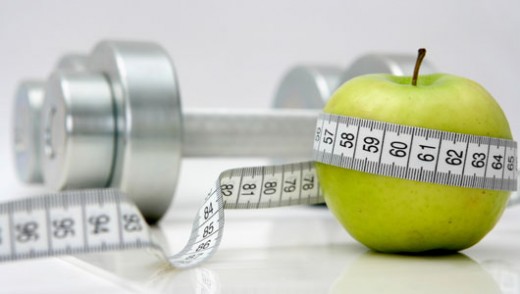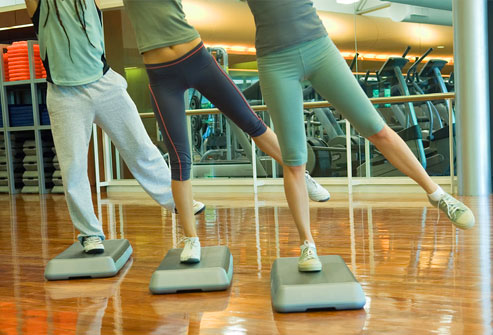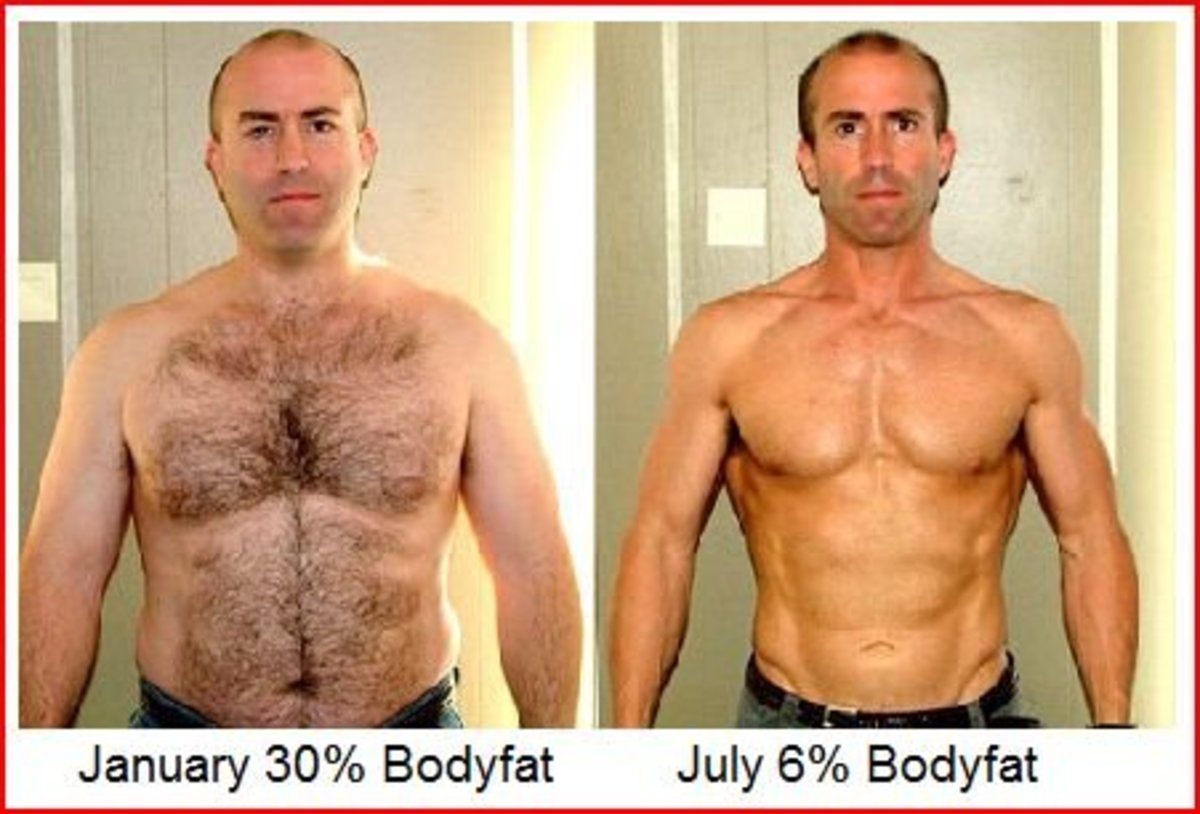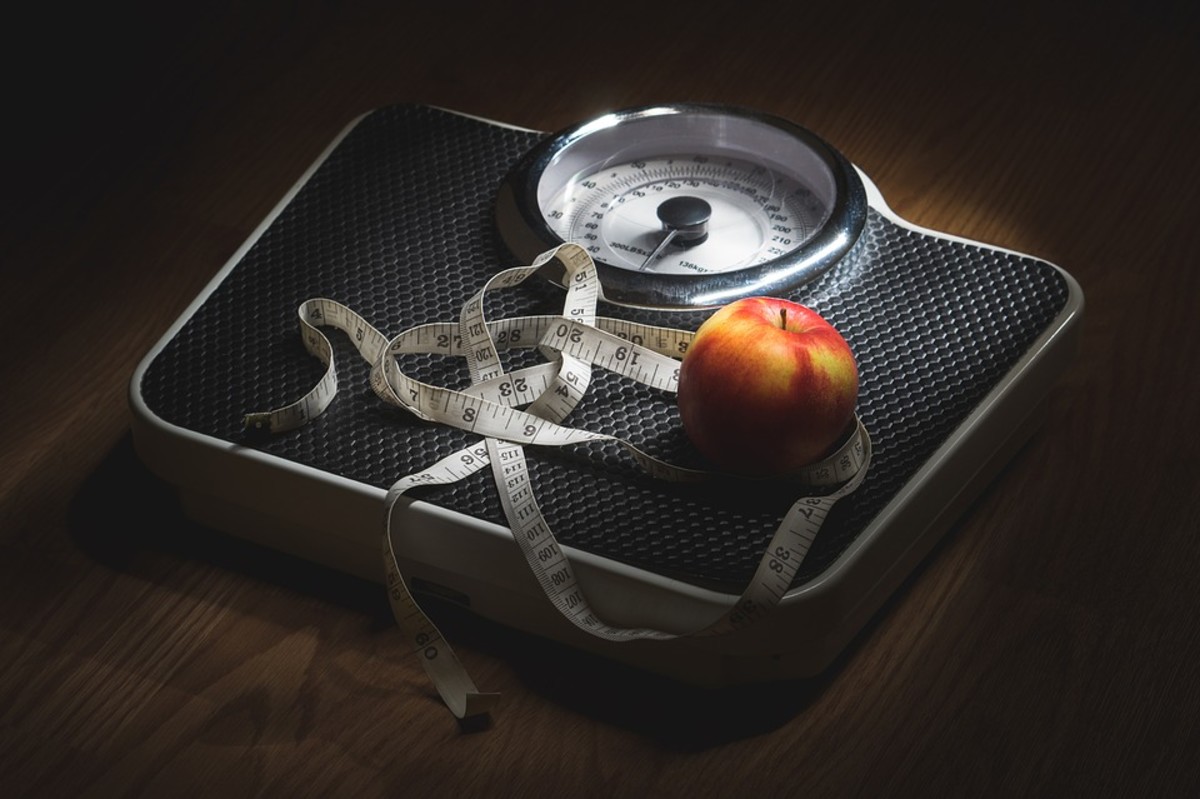Don't Try A New Diet Know How Your Metabolism Works and Increase It

Metabolism and Staying Fit
If you're in search of ways to lose some weight or trying to keep your current weight, we heavily focus on fat reduction, calorie, and our workout schedule. One fundamental key in weight loss puzzle, however, is your metabolism, which often you might not take into consideration.
Could there really be such a thing as a fast or slow metabolism? And exactly what does metabolism do in the first place? Know how metabolism works and start burning those unwanted fats.
Control Your Food Intake for Better Metabolism
If you want to lose weight, an effective way is to know how your body uses the foods and nutrients you eat. Metabolism is the process your body digests the foods you eat and drink, transforming all that sugar, protein and fat into energy your body needs. It's a continuous, double-process of anabolism and catabolism. Anabolism is the process of energy production and storage while catabolism is the process of energy burning. These processes are controlled by the endocrine system, the system responsible for all of our body's workings, from cell and tissue formation and restoration to reproductive and mood regulation.
While you can't directly influence your metabolism, it is possible to control your food intake, the amount of food you eat and the level of physical activity you get regularly. These 3 factors significantly affect your metabolism. It always comes back to eating right and working out.
Measure Your Basal Metabolic Rate
Our body function in different ways and everyone has a different metabolic rate. The key is to understand how fast or slow your metabolism by measuring your Basal Metabolic Rate (BMR), and then simply adjust your calorie requirements and level of physical activity to match how your body works best.
BMR is an important factor in determining your metabolic rate to effectively reduce weight. BMR measures how many calories you burn even when you are at rest. (Remember even while you're at rest, your body continue using energy for respiration and other important functions that keep you alive.) It is measured according to your age, gender, height and weight variables.
English BMR Formula
Women: BMR = 655 + (4.35 x weight in pounds) + (4.7 x height in inches) - (4.7 x age in years)
Men: BMR = 66 + (6.23 x weight in pounds) + (12.7 x height in inches) - (6.8 x age in year)
Metric BMR Formula
Women: BMR = 655 + (9.6 x weight in kilos) + (1.8 x height in cm) - (4.7 x age in years)
Men: BMR = 66 + (13.7 x weight in kilos) + (5 x height in cm) - (6.8 x age in years)
Fast Metabolism is just a Misconception
Your metabolism is particular to you; determined by your genetic makeup, age, gender, muscle mass and certain environmental factors. While your training companion apparently can eat anything and still remain in shape, does he have a faster metabolism? Probably not his metabolic rate is making such a difference. He is most probably learned, through work or luck, the ideal lifestyle-ratio. He’s applying a balance in his calorie intake, doing proper exercises, how much muscle mass he needs and the amount of sleep he gets. If he has that piece of pie after dinner every night without getting a pound, it’s very likely he’s already fit, extremely active physically and getting huge amount of sleep every night.
If you skip meals or significantly lower the amount of calories you eat, your body will respond by slowing down your metabolism, which enables it to conserve calories for energy requirements to run its important functions. Taking loads of calories without equally pairing it with physical activity, those unused energy will turn into excess weight.

Aerobic Exercise Improves Your Metabolism
Essentially, handling your weight problems starts with “the more activity you do”, “the more energy/calorie you burn”. Meaning the level of physical activity you do each day directly influence your weight loss and gain compared to a fast or slow metabolism. When you're working to lose or maintain weight, physical activity should be given priority considering that you can schedule it - you can be less-active or active anytime like to be.
A 150-pound individual who works out for 60 minutes (with a speed of 1 mile/10minute) will burn roughly 680 calories, or around the amount of calories in a MacDonald’s Hamburger. But even the most inactive among us still burn calories, only not that many. Our bodies utilize as much as 10 percent of the calories from the foods for digestion. Actually don't bet on that 10 percent to immediately change your waistline.
More Muscle Mass Can Increase Your Metabolism
Muscle mass will make you strong, and it can also help us burn calories - during workouts and during relaxation. Strength training paired with resistance training help develop muscle mass, involve exercises such as weight lifting or using a resistance band. Incorporating strength training to your workout is valuable to build muscle mass and strong bones. One pound of muscle burns about 15 calories a day, and while that's still not much you can compare what 1 pound of fat will do to you. Studies have found that after strength training is included in a weekly exercise, basal metabolic rate received an improvement.
Good Amount of Sleep Means Healthy Metabolism
It is not really your midnight treats but actually your lack of sleep that's sabotaging your diet.
A research by the University of Chicago found that when we don't get sufficient sleep, "sleep debt" affects the way our endocrine system works. That includes our metabolism. And it's not good. Getting half of the recommended sleep - four instead of eight hours of sleep each night - for six night’s affects how our body control blood sugar levels and how it store energy that unfortunately healthy participants on the research unexpectedly started to display early symptoms of diabetes.
If you're typically getting about seven or eight hours every night, adding or subtracting about an hour won't make huge a difference. But if you're not getting above four or five hours of sleep a day, add another two or more you will experience weight loss.

Age Slows Down Metabolism
As we get older our metabolic rate naturally slows down. Based on a research at the University of Colorado, less active postmenopausal women have nearly a 10 percent decline in their BMR. That will clearly explain the prevalent problem of women who are in their 40s and 50s: gaining weight and difficulty slimming down like they were able to do before.
To fight the impacts of aging on our metabolic process, we must improve our lifestyle - beginning in our 40s, we must take low calorie foods, lower that 200 calories, to help keep a proper weight. And don't ignore physical activity. Regardless of our age, physical activity and strength training are factors to improve metabolic rate and weight loss.
Slow Thyroid Means Slow Metabolism
Your thyroid is a butterfly-shaped gland found below your Adam's apple. Although you are completely unaware what it does to you, until it starts to go awry and you wonder why your efforts doesn't get good results?
The way thyroid helps is that it releases hormones that regulate many bodily functions, including your metabolism . When your thyroid gland delays, even on the slow side of normal, your metabolism also slows down. On the other hand, if it's overactive, your metabolic rate accelerates. Your doctor can test your thyroid function, and if needed will recommend synthetic thyroid hormones to help you’re lagging gland.

Caffeine Improves Your Metabolism
Caffeine gets both a good and bad status in weight loss and metabolism. With regard to improving your metabolism, it may benefit to make up a pot of coffee. Caffeinated drinks is a stimulant, a lot of people find that coffee makes them alert - that's caffeine's effect on the central nervous system. Stimulants power up your engine, which in turn includes pumping up your metabolism.
Additionally, researchers have found that green tea may speed up your metabolism and help you burn or maintain weight, especially when blended with caffeine. Research studies at the Lausanne University in Switzerland found that participants who consumed three servings of green tea over a period of three days resulted in a 4.7 percent increase in their energy and that means an increase in metabolism.
Calories Helps Your Metabolism to Effectively Lose Weight
The majority of dieters monitor what they're eating. This may be good, however, with a few adjustments it could be better. Foods you eat won't directly affect the rate of your metabolism it's the amount of calories and the degree of physical activity that will speed up your weight loss.
To be successful in your weight loss, eat foods that’s high in protein (turkey breast, tuna, salmon, and halibut), nuts, seeds, beans and low-fat dairy products (yogurt, milk, soy milk). Keep an eye on your portions and amount of calories you eat in one day - to shed one pound, you need to reduce your calorie consumption by 3,500 calories, the amount of calories in one pound of fat (Losing 500 calories from your diet a day for 7 days will mean dropping one pound in one week).
To determine what's effective for you try to determine your BMR and the Harris Benedict formula to get better idea of your calorie needs. The more you are aware of how your body functions, the better your weight loss plan will be.





